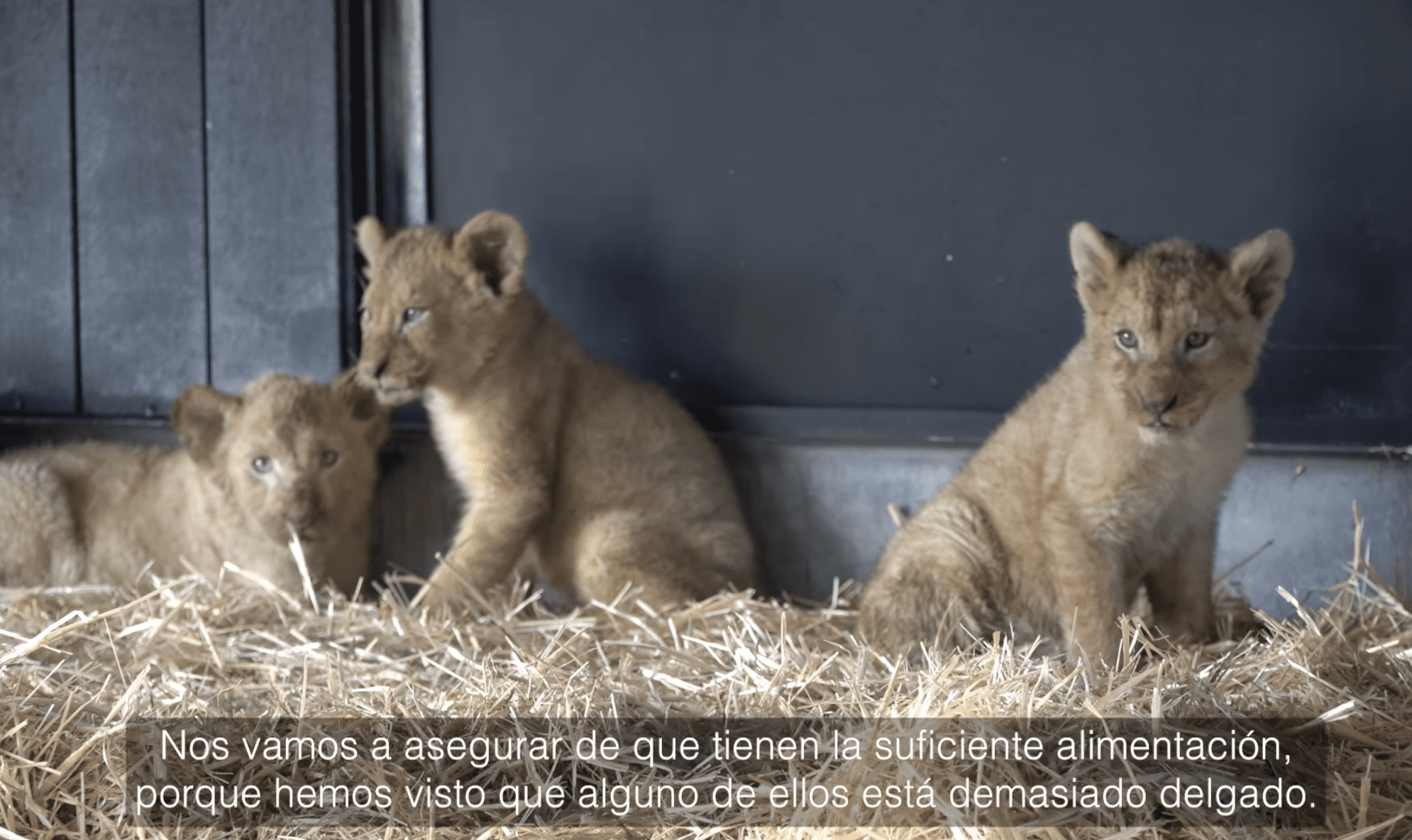NINE adorable lion cubs have found a new home in Spain after being rescued from a circus in France
Alicante now has its very own pride as 12 lions have touched down in the AAP Primadomus animal shelter, Villena.
They travelled 20 hours from a western France where they were cruelly used as part of a circus.
The group includes nine cubs between three and five months an 18-year-old male, and two females aged 10 and 12.
AAP Primadomus specialises in the rehabilitation of big cats and primates, where the lions will rest and recover before finding a forever home.
It is thought the cubs were born this summer at the circus, despite it being illegal to breed, own or sell wild animals as part of a circus under French law.
Circus acts using animals are still allowed in the country until 2028 but the owners had stopped using the lions in acts, leading to a lack of care.

It is also feared they were going to be sold to cover the maintenance costs of the circus.
Berta Alzaga, Head of Communications at AAP Primadomus, told El Pais: “The lions ended up here because there are no such shelters in France, and we are a European organization committed to offering a better future for the animals.”
When the lions arrived in Villena, they were covered in filth and had likely ‘been kept in trailers at the circus for at least the past month,’ as they could not be let out.
The animals were initially very nervous, particularly the cubs, but they ‘calmed down’ once they were reunited with their mothers, according to Pablo Delgado, Director of AAP Primadomus Spain and Head of Big Cats.

The priority now is to allow the lions to rest, recover, and undergo medical assessments. Delgado notes that the cubs ‘appear quite thin and have not received veterinary care at the circus.’
Furthermore, they lacked the mandatory identification microchips, which were implanted during their transfer.
The lions will spend at least a month in quarantine at the rescue centre, during which time they will remain confined and will not have access to the larger 4,000-square-metre facilities.
“Unfortunately, we have no choice but to keep them isolated until we can confirm they are healthy, free of parasites, and without any nutritional deficiencies,” Delgado explains.
The rescue operation was conducted in collaboration with French authorities, who aimed to confiscate the animals, as well as with Code Animal, a partner organisation of AAP.

The process was not without challenges; an initial attempt in October failed due to a lack of cooperation from the circus, leading to a “very tense situation.”
After a month of negotiations, the circus owners voluntarily agreed to hand over the animals, avoiding the need for confiscation.
Once the lions are deemed physically and socially rehabilitated by veterinarians, they will be placed in permanent homes, which could include wildlife sanctuaries, reserves, or accredited zoos. “If we cannot find a suitable home, they will remain with us,” Alzaga explains.
AAP is working to raise awareness of the “devastating” consequences of using wild animals as “circus performers.”
A study conducted by the organisation, titled The Darkness Behind the Spotlight, revealed that 89% of exotic animals rescued from circuses suffer from lasting physical or psychological harm. AAP is campaigning for improved animal welfare laws and a complete ban on animal circuses across Europe.
Such a ban would prevent ‘more animals from being forced to perform, endure constant travel, and face the same terrible fate as these cubs.’
It would also address disparities in regulations between regions where the practice has been outlawed and those where it is still permitted.
In Spain, circuses with animals were banned last year following the enactment of Law 07/2023 on the Protection of the Rights and Welfare of Animals.
Prior to this legislation, many municipalities, towns, and autonomous communities had already implemented bans.
By the time the law came into force, 12 Spanish regions had abolished the practice, meaning ‘75% of Spaniards lived in areas free from circuses with animals, whether within or outside their communities.’








